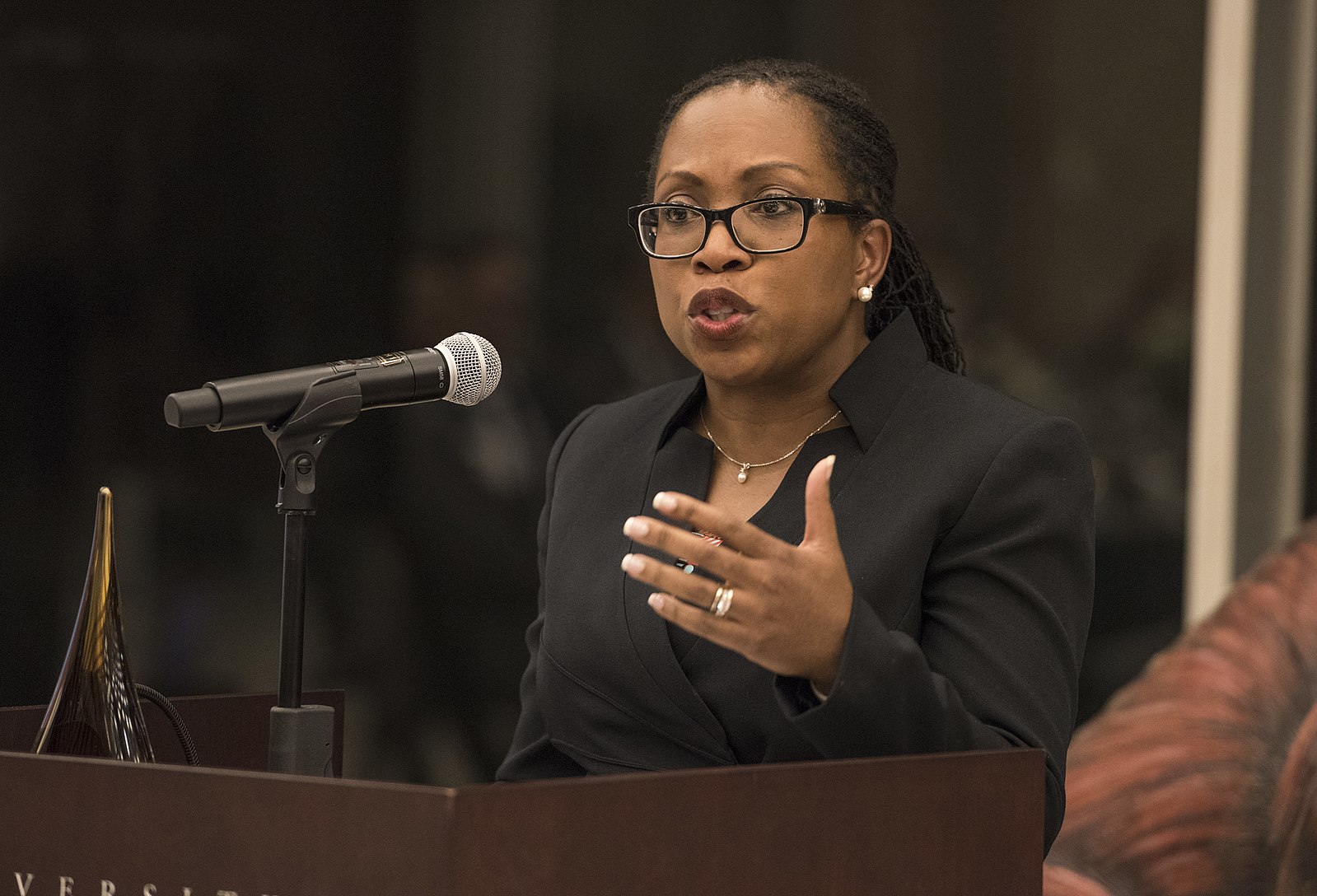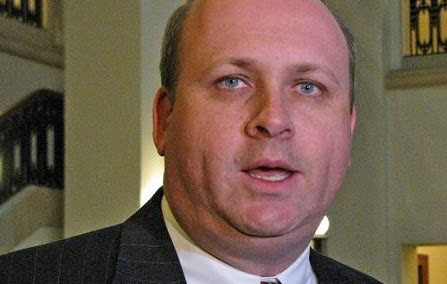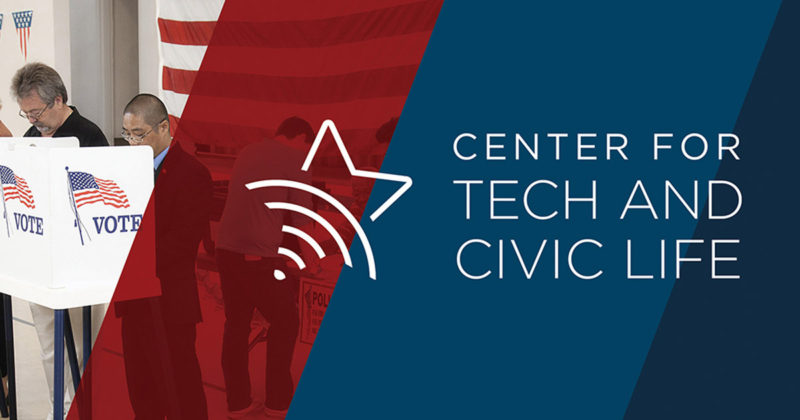Supreme Court frontrunner Judge Ketanji Brown Jackson was an active and dedicated advocate for terror suspects housed at Guantanamo Bay, contrary to press accounts and her own representations.
 Judge Ketanji Brown Jackson speaks in February 2020 while being honored at the University of Chicago Law School’s Parsons Dinner. (Lloyd DeGrane via Wikimedia Commons)
Judge Ketanji Brown Jackson speaks in February 2020 while being honored at the University of Chicago Law School’s Parsons Dinner. (Lloyd DeGrane via Wikimedia Commons)
Jackson has portrayed her work for the detainees as that of a disinterested professional fulfilling an assignment. But a Washington Free Beacon review of court filings dating back to 2005 indicates that Jackson was deeply committed to equal treatment for accused terrorists. Her advocacy was zealous and often resembled ideological cause lawyering, even in her capacity as a public defender. At times, she flirted with unsubstantiated left-wing theories that were debunked by government investigators. On other occasions, she accused Justice Department lawyers of egregious misconduct with little evidence.
As a federal public defender, Jackson represented a Guantanamo detainee accused of attacking a U.S. military base in Afghanistan. She continued to advocate on behalf of detainees and attack Bush-era detention policies in the Supreme Court after she left public service for private practice.
President Joe Biden’s approval numbers tumbled after the chaotic withdrawal from Afghanistan last summer. A retread of the War on Terror could be unwelcome for the administration, especially as new developments reveal the extent of the government’s ineptness. Leaked Situation Room documents released by Axios Wednesday show that top administration officials were scrambling to plan a mass evacuation of civilians as late as Aug. 14, the day before Taliban forces reached Kabul. The White House did not respond to the Free Beacon‘s request for comment.
Jackson’s public defender unit was charged with representing Guantanamo inmates who challenged their incarceration in a federal court in Washington, D.C. Jackson’s client was a detainee named Khiali-Gul, who maintained that he was an innocent man wrongfully detained.
“I had a job in Mr. Karzai’s government and I have done personal favors for the Americans and helped them,” Gul said in a 2005 court filing.
U.S. investigators reached quite different conclusions about Gul. A 2008 Defense Department assessment states that Gul was a Taliban intelligence officer and the likely leader of a terror cell near the city of Khost. The cell met at his home on Dec. 1, 2002, to plan a rocket attack on a coalition forward-operating base, which took place just hours after the gathering. A separate Defense assessment flagged a possible meeting with Osama bin Laden in November 2001.
In written exchanges with Republican lawmakers ahead of her confirmation to an appeals court last year, Jackson emphasized that she represented Gul in her capacity as a government lawyer duty-bound to advocate for all indigent defendants. She implied but did not say she did so under orders. The Washington Post presented the facts along those lines in a Jan. 27 story about her prospective nomination.
But filings Jackson submitted for Gul were hardly perfunctory. In 2005 she filed a petition on Gul’s behalf that went well beyond the particulars of his case to broadly assail Bush administration War on Terror policies. For example, she accused the government of pioneering torture tactics used at the Abu Ghraib prison in Iraq on Guantanamo inmates.
“Many of the most egregious interrogation techniques used in the Abu Ghraib detention center and other detention facilities in Iraq—such as the use of aggressive dogs to intimidate detainees, sexual humiliation, stress positions, and sensory deprivation—were pioneered at Guantanamo,” she wrote, by way of arguing her client was subject to inhumane confinement conditions.
Such allegations were common among Democratic lawmakers and left-wing advocacy groups. But a 2005 report of the Pentagon inspector general, much of which remains classified, rejects that assessment. Testifying before the Senate Armed Services Committee in 2005, Vice Admiral Albert Church rejected any such Abu Ghraib-Gitmo nexus.
Jackson also criticized the “extraordinary rendition” program, through which detainees were secretly transferred to countries where prolonged detention and torture could be practiced. Gul was never subject to the program, making the criticisms afield of the dispute. He was ultimately repatriated to his native Afghanistan.
Later in the course of Gul’s case, Jackson would accuse government lawyers of serious ethical breaches. In 2006, she asked the judge who presided over Gul’s case to sanction Justice Department lawyers over the government’s response to a rash of detainee suicides. Sanctions are reserved for serious misconduct and are always embarrassing to those involved. Penalties range from remedial classes to suspension or disbarment in the relevant court.
Three Guantanamo detainees committed suicide on June 10, 2006, by hanging themselves in their cells. Rear Admiral Harry Harris, who then commanded at Guantanamo, called the incident a coordinated protest act. The suicides followed a May uprising in which inmates attacked guards with fan blades and broken light fixtures, as well as revelations that some inmates were hoarding prescription medications.
The Defense Department on Dec. 20, 2014, announced Gul’s repatriation to Afghanistan under an executive order from then-president Barack Obama that required the intelligence community to determine whether Guantanamo detainees should be released, transferred, or prosecuted. The 2008 assessment predicted he would resume his extremist activities without close supervision.
The Free Beacon was unable to determine whether Gul reenlisted with the Taliban ahead of the terrorist group’s rapid conquest of Afghanistan in 2021. Other Guantanamo prisoners did so. Ex-detainee Gholam Ruhani maintained that he was “a simple shopkeeper who helped Americans” in court papers while fighting his five-year detention at the naval base. He was among the commandos who last August stormed the presidential palace, and he appeared on camera in former Afghan president Ashraf Ghani’s office cradling a machine gun and reciting the Quran.
Free Beacon has more details here.
Another source here has a very detailed resume.
Simply put, she is trouble and if nominated, you can bet the confirmation hearing will be wild.






 It should also be noted that Anita Dunn was the top Biden campaign advisor.
It should also be noted that Anita Dunn was the top Biden campaign advisor.